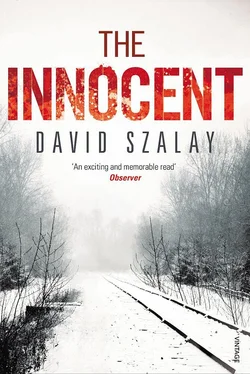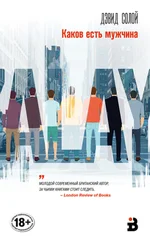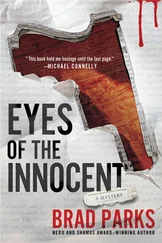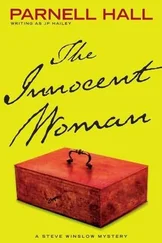His photo is on the front of this week’s Soviet Sport . Aleksandr holds the paper up and inspects it – the huge face with its little sunken eyes. There is something insane about them. Fischer looks like he hasn’t slept in days. His hair is a mess; his mouth hangs slightly open. There is also a photo of Boris Vasilyevich. Next to Fischer he exudes a sincere, serious dignity. Aleksandr looks at his watch – two minutes have passed since he played pawn d4. Quietly, the commentator interrupts the silence to say, ‘Fischer has still not arrived. I remind you that if he has not arrived within one hour, he will forfeit the game.’
Minutes pass, and he looks over the profile of Fischer in Soviet Sport . Fischer’s social and political development are as stunted as his emotional development. He is not married and has no friends. A member of a profiteering Christian fundamentalist sect, he loathes everything politically progressive. His ambition is to get rich, and money is his principal motivation. He agreed to take part in the World Championship match in Reykjavik only when a British millionaire doubled the prize fund to $250,000 … His contempt for women is well documented. In an interview he states: ‘They’re all weak, all women. They’re stupid compared to men.’ More disturbing still is his anti-Semitism. ‘There are too many Jews in chess,’ he insists. ‘They seem to have taken away the class of the game. They don’t seem to dress so nicely, you know.’ This despite the fact that his own mother is Jewish … At the chessboard he tries to intimidate his opponents with his overbearing personality, and will storm out like a spoilt child if playing conditions are not to his exact liking. A spoilt child, of course, is exactly what Fischer is. This, some might say, is the inevitable fate of the child prodigy, but let us not forget that Spassky too was a prodigy, winning the Soviet championship at seventeen. Learning his chess in Leningrad after the war, this son of a peasant mother and labourer father has found a rather more sober maturity: while Fischer, at the age of twenty-nine, reads nothing but puerile comics with names like Spiderman and Batman, Spassky reads Dostoyevsky. While Fischer indulges in fantasies about living in a house shaped like a rook, Spassky works hard to raise a family …
Next to the profile is another, smaller photo of Fischer in which he is being fitted with a suit, a tailor in the background, chalking marks on the half-made, one-sleeved jacket. Fischer’s hands are on his hips and he is looking at the camera with a joyless smile on his big face, a smile that expresses nothing but self-regard and contempt for the world. Here, Aleksandr thinks, is a man who has not engaged with the world except through chess and money. He has not engaged with the world morally in any way …
Suddenly, the radio registers a whispering commotion, the unsettling of an audience. ‘He’s here,’ the commentator says grimly. ‘He’s arrived. Fischer has arrived. Seven minutes late. He’s coming onto the stage. Spassky stands. They shake hands. Fischer takes his seat. What is … Oh he’s played. He’s played knight f4.’
Aleksandr moves the black knight out to f4, and stares thoughtfully at the board.
It is Spassky’s move.
‘Pawn c4,’ announces the commentator.
* * *
Hours later, and the living room is full of hot evening sunlight. The windows are open, and outside children are playing in the street – he hears their loud shouts. The board on the desk has developed into a fixed, complex position. It is evenly balanced – both players have a bishop and six pawns. It is a drawn position. The radio fizzes tensely. ‘Pawn b4 to b5.’ The commentator’s voice is tense, and tired. Aleksandr advances the white pawn, and waits for Fischer’s move. ‘Bishop d6 takes h2. That’s a blunder,’ says the commentator. There is a quiet murmur in the hall. Aleksandr makes the move. He doesn’t see …
‘Pawn g2 to g3.’
The commentator sounds less tired.
Oh, yes. The bishop’s snared. Aleksandr frowns, displeased that he did not see it. ‘The game has been transformed,’ whispers the commentator excitedly. ‘It’s been transformed. It seemed like it was heading for a certain draw. Spassky was playing for the draw, exchanging at every opportunity. Fischer wasn’t satisfied with the draw. But he was too aggressive. An extraordinary blunder. Now, surely, he’s going to lose.’
As night falls on Sverdlovsk, the endgame drags on – the patient, slow-motion game of kings and pawns. Fischer is struggling to survive with pawns against pawns and bishop. Spassky is struggling to finish him off. In the end, when moths are bumping almost silently into the light bulb that hangs from the ceiling, the game is adjourned until tomorrow. Applause – he switches off the radio, stopping it short, and stares at the position of the pieces. Silent little pieces of wood whose significant positions are tonight transfixing the world.
He wakes very early in the morning. Even this early the air is soupily warm. There is a very fine mist in the street. He sits down at his desk, and suddenly the strokes of the typewriter smash the early morning peace.
Spring
had
transformed
the
forest
He stops. He is about to tell the story of how he went to Metelyev Log for the second time, when spring had transformed the forest. However, there is something that he omitted from the story of his first visit. Then, for most of the time, it rained. His memories of the place are mostly of rainy weather – of misty rain that glistened on the nap of coarse cloth, like the grey collar of her coat.
There was only one sunny day while he was there – he woke to find the knotholes in the window shutters fiercely white. From somewhere outside he heard the slow strokes of an axe. The sun was warm. Insects sported in its warmth. The sound of the axe was coming from the side of the house, where the wood pile was, and there, on a scarred tree stump, she was splitting logs into smaller pieces. Later, they went for a walk. Unselectively, the sun highlighted small pieces of the forest. He was not dressed for the sort of walk she had in mind, in his suit trousers and waistcoat and filthy shirt. His leather-soled shoes slipped on the wet clay, and he walked more slowly than she did, stopping to peer into the long shadowy perspectives of the wood, where the light shape-shifted under the trees when the wind, softly, moved their foliage.
‘I saw a bear once,’ she said.
‘Here?’
She nodded. ‘It was just walking along. I don’t think it saw me.’
‘Were you scared?’
‘No. Maybe I should have been.’
‘Maybe. What time of year was it?’
‘This time of year. Spring. Two years ago.’
‘Then you should have been scared,’ he said. ‘It’s this time of year they’re most dangerous, when they’ve just come out of hibernation and they’re starving.’
‘I know. So I stood very still and watched it walk past. It was about … fifty metres away, moving through the trees. Slowly, not in a hurry. Sometimes it lifted its head and sniffed the wind. Then suddenly I had an impulse to make a noise, to shout out.’
‘I hope you didn’t.’
‘I shouted, “ I’m here! ”’ He thought she was joking and laughed. Then she said, ‘I did.’ And when he still looked sceptical, as if he did not know whether to take her seriously or not, ‘Yes, I did.’
‘Why?’
‘I don’t know.’
‘What did it do?’
‘What do you think? It looked at me. I don’t know if it saw me. Even then I wasn’t scared. I just wondered if it would kill me. For a long time it didn’t move. It seemed like a long time. It was probably only a few seconds. Then it walked on.’
Читать дальше












